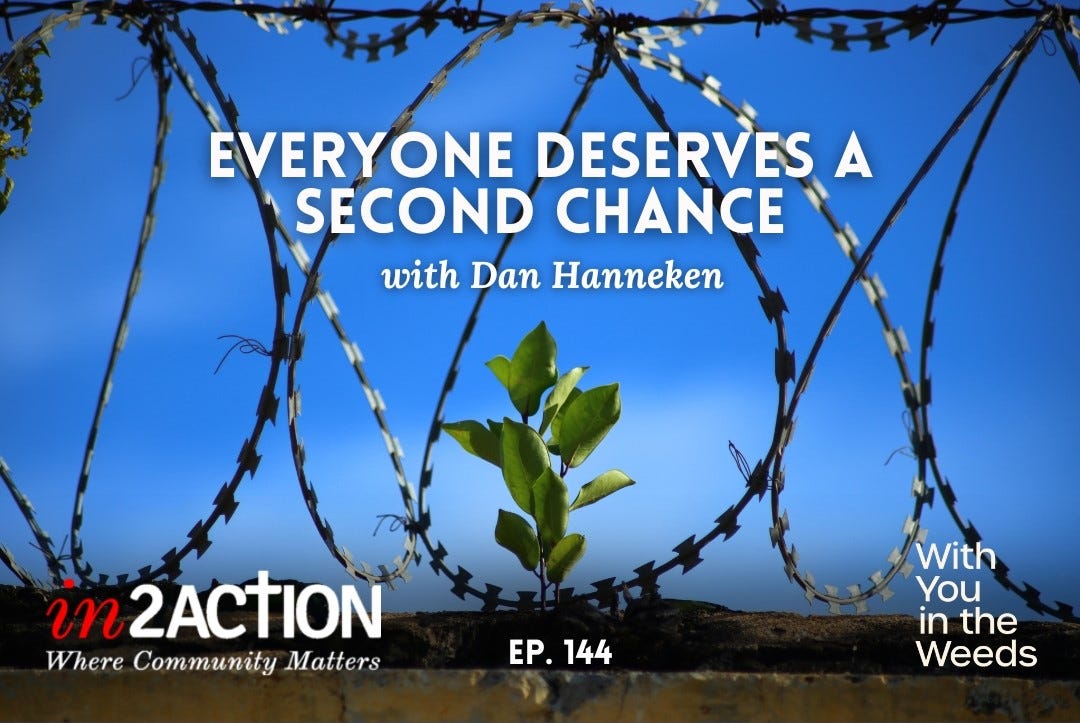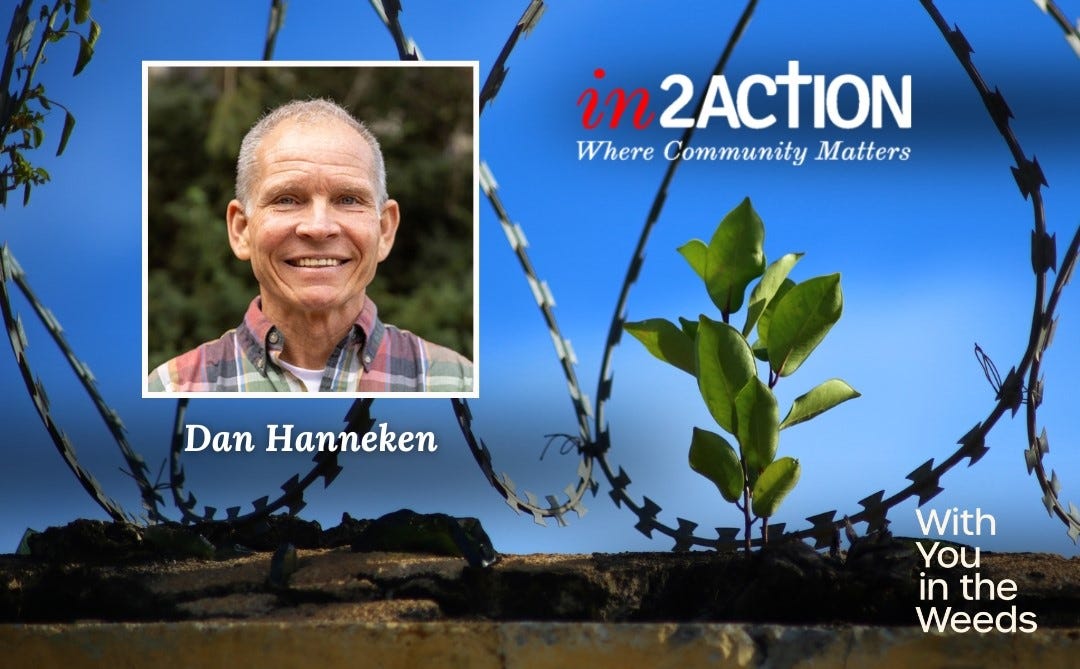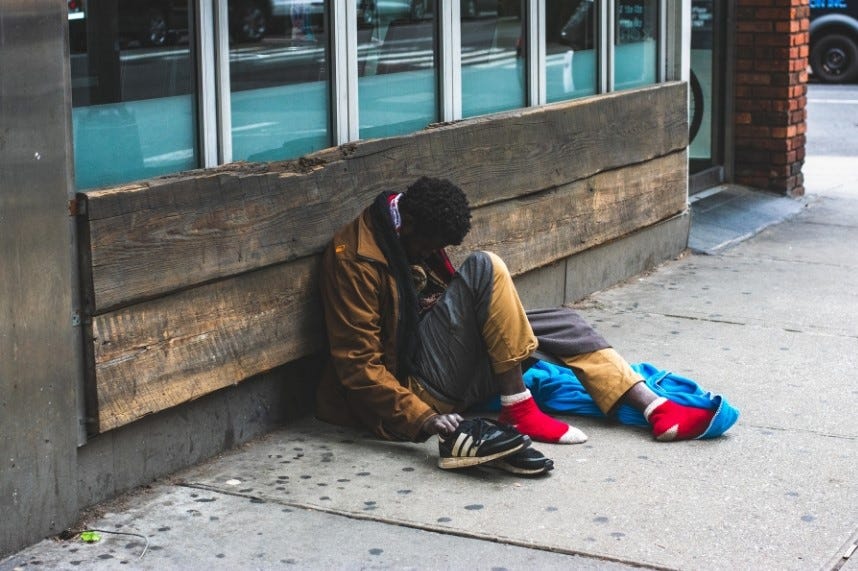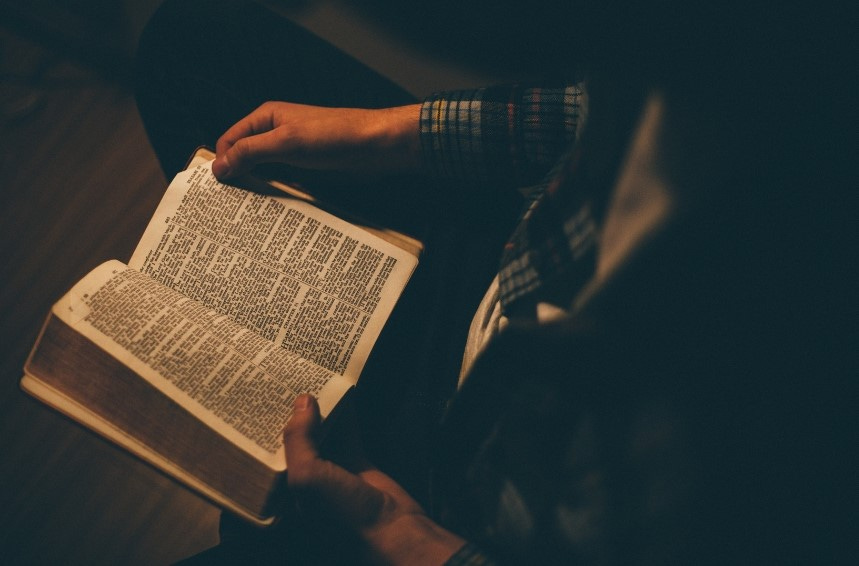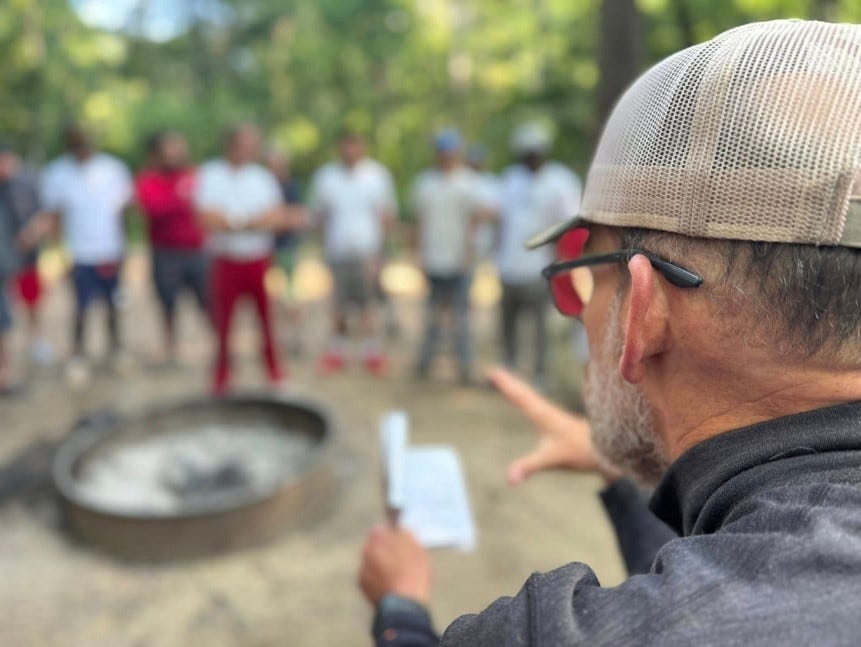Everyone Deserves a Second Chance with Dan Hanneken
The power of belonging changes everything
Have you ever been given a second chance? Perhaps you know the feeling of relief and gratitude that comes along with the opportunity to rectify a past mistake – or you’ve been the one who was able to offer it to someone else.
In the final episode in our Loving Your Neighbor as Yourself series, Shay talks with Dan Hanneken about his remarkable journey from addiction and jail time, to a life-changing encounter with God in a prison cell, to a calling to serve those who are recently released from prison.
Dan founded In2Action to provide men with the life skills, support, and training they need to connect with others and contribute to the community. Along the way, they grow in their faith through Bible study and men’s ministries, and partake in fun adventures, including float trips, camping, and ziplining.
As you listen to Dan’s story of transformed lives, you’ll understand in a new way that God’s grace offers a second chance for anyone willing to surrender.
Highlights of Shay’s Conversation with Dan
Shay: We've been in a series where we've been looking at the topic of loving your neighbor. Besides figuring out what Jesus meant by that mandate, we’re interviewing different people in our community that we think are loving our neighbors well.
Today I have Dan Hanneken with me, who is the head of a ministry called In2Action here in Columbia, Missouri. Welcome to the program, Dan.
Dan: Hi, Shay, thanks for inviting me. I'm excited to be here.
Shay: We’ve known each other for almost 20 years! Why don't we start with you telling us a little bit about In2Action.
Dan: Absolutely. In2Action is a nonprofit ministry that helps people who are recently released from prison. We want to help people successfully and permanently transition from prison back into our community here in the Columbia and Boone County area.
We provide comprehensive residential services. We take people the day that they're released from prison and they enter our highly structured program. We provide life skills classes, coaching, and basic needs. There's a lot of structure on the front end. Over time, we reduce that structure and help the guys transition into independent living.
Shay: That is awesome. So how many guys can you have in your facility now?
Dan: We have over 60 residential beds; that includes group homes where there's two people in a bedroom all the way to one bedroom apartment as people are finishing their transition process with us. We also have the Reentry Opportunity Center, or ROC. That serves people in the community that don’t need housing. And we have respite care, which is housing for people that are actively under the influence of alcohol and drugs. It allows them a place to detox and get connected to services.
Shay: Transitioning from prison life back into a community is often very difficult, and recidivism can be very high. I’m glad that In2Action is able to do that for people coming to the area.
Dan: Very few people relocate here; these are people who are coming back to Columbia and Boone County because it’s where they’re from. So these are our neighbors, right? These are our friends and family members who have been incarcerated, they're coming back home. We want to provide effective services so they can successfully transition back into the community.
Recidivism is the big term in the type of work that we do; everybody wants to measure success by the rate at which people go back to prison. The three-year recidivism rate in Boone County is 43%. That's very consistent with the state average. What that means is 43% of the people that are getting out of prison this year will be back in prison within three years.
At In2Action, the three-year recidivism rate drops below 10% for people that stay engaged in our program. Those are phenomenal outcomes compared to what a lot of other programs are attempting to do. Recidivism itself is not the best way to measure success. Just staying out of prison is a really low bar and we strive for a whole lot more than that for the people we work with.
Recidivism itself is not the best way to measure success. Just staying out of prison is a really low bar and we strive for a whole lot more than that for the people we work with.
Shay: That is great. Let me pick up on that a little bit then. What are some of the challenges that these guys face when they rejoin a community? How would you define success? What are you looking to do and wanting God to do in the lives of these guys and through this ministry?
Dan: When we started In2Action, I wanted to do things the way that I thought Jesus would do them, in a way that was consistent with Scripture. And so we did that. It was very nontraditional, and it’s stayed that way. We don’t do a lot of clinical stuff. I'm a licensed clinical social worker, but we don't do any clinical stuff at In2Action.
We believe that more than anything, people need community and a sense of belonging. I’ve coined the term ‘social transition’ to describe the reentry process, and we ask ourselves, what does it look like for people to socially transition from a prison yard, from a drug house, from a street corner, from a gang? What does it look like to socially transition from that environment into a healthy environment?
When you're walking the prison yard, you would never ask somebody about their daughter. Those are fighting words in prison. But in a regular social setting, it’s rude to not ask someone about their children. You may even have to sit back and see all the pictures on someone’s phone and share stories.
We have found that the housing people will say, “if a person doesn't have a place to live, nothing else matters.” And the employment people say, “if a person doesn't have a job, nothing else matters.” And the transportation people, and the mental health people, and the addiction people all have different ideas about what matters most.
We do provide a lot of those things, but not all at once. And if we provide all of those things, but you're still using drugs, everything else comes tumbling down. So we focus on making sure you have a sense of community, and people in your life that you can turn to. If it takes a year to get all of those pieces together, that’s okay, but you don't have to do it alone and that's what we think has really made a difference.
Shay: So you think that a sense of community above all else is what has really made In2Action successful at changing lives?
Dan: Absolutely. In recent years, the focus on community has really started to get some traction. So we're not the only ones doing the social model of recovery in the nation for sure, but we're probably the only ones that are doing it in central Missouri.
Shay: It's like the Christian life, right? It was never meant to be lived alone. We need other people. You can find passage after passage like that in the Bible.
Dan: When people are released from prison, there’s two different directions that they’ll typically go. They’ll either hang out with the people they used to hang out with, or they realize they can’t hang out with those people anymore, and isolate themselves.
If someone goes back to a group of friends that had a bad influence on them, it’s probably not going to go well. But if they can form relationships with other guys that are going in a different direction, it can be life-changing.
Shay: Tell us a little bit of your story and how it kind of led you to starting In2Action. What led up to this?
Dan: I was very socially awkward as a child. Really shy, afraid of people. Both of my parents only had a sixth-grade education. They didn’t know how to help me. At the age of 14, I tried alcohol for the first time, and it set me free. All of those inhibitions just went away. I could talk to girls and I felt socially comfortable. Where had this been my whole life?
I drank a lot that first night and woke up hung over and drank that next night and I was off to the races at that point. Pursued that freedom to the extreme until I was completely strung out on drugs and alcohol and got arrested and went to prison.
The first time that I went to prison, I was alone in a cell. A police officer would bring me a meal three times a day. At one point I asked him, "Do you have any magazines or books that I could read?" He said, “No, there’s nothing.” I pointed to a book on top of a file cabinet. He said, “That’s a Bible, you don’t want that.” But I convinced him to give it to me. It was a King James version, so I might as well have been reading the original Greek and Hebrew. But I sensed some kind of comfort from it. After going to church and hearing the Gospel, I dedicated my life to Christ.
The first time I was released from jail, I thought for sure that I would never go back. But I ended up going back two more times. In spite of my faith, I couldn’t succeed no matter how hard I tried. I was ready to give up on Jesus, just exhausted from trying so hard, when God told me, “Now you’re getting it. Of course you can’t do it. That’s why Jesus did it for you.”
I remember telling someone that my dream was to create a program to help men like me after prison, to have housing, support, community, and a second chance at life. Shay, if you remember one of our very early conversations, I asked if you had a prison ministry here at The Crossing and you're like, no, a lot of people have talked about it. So we were able to launch In2Action with the help of The Crossing.
People on the outside looking in who don’t know better would think we're a bunch of do-gooder Christians, but we like to have fun. We go on float trips, we go to Cardinals games, we go ziplining, we do all kinds of things. These guys attend church and get involved in Bible studies and men’s ministries.
When I was in college, I had a friend who minored in Spanish, which meant she had to take six semesters of Spanish. Her senior year she went to Costa Rica for six weeks and came back having learned more Spanish in Costa Rica than she learned in three years of Spanish classes.
We find the same thing is true with the social transition that we’re trying to facilitate at In2Action. There’s a language barrier, a social barrier for these guys, and they’re going to learn more by being immersed in community than they would on their own, just meeting with a case manager once a week.
Shay: It's been a blessing for us as a church to support you. There are some business owners at our church who’ve employed men from In2Action. Seeing the changes in their lives will bring tears to these business owners’ eyes. God has a heart for prisoners, and we can't forget them. I appreciate you and your staff and everything that you do to love our neighbors. Thanks for so much for being on With You in the Weeds.
Dan: Absolutely. Thank you, Shay.
Recommended Resources
In2Action: Where Community Matters - Transitional support, housing, and recovery services to people recently released from prison in the Columbia, MO area.
ROC - Reentry Community Center - Tangible resources to help with reentry and recovery, including job readiness training, transportation services, and counseling.


